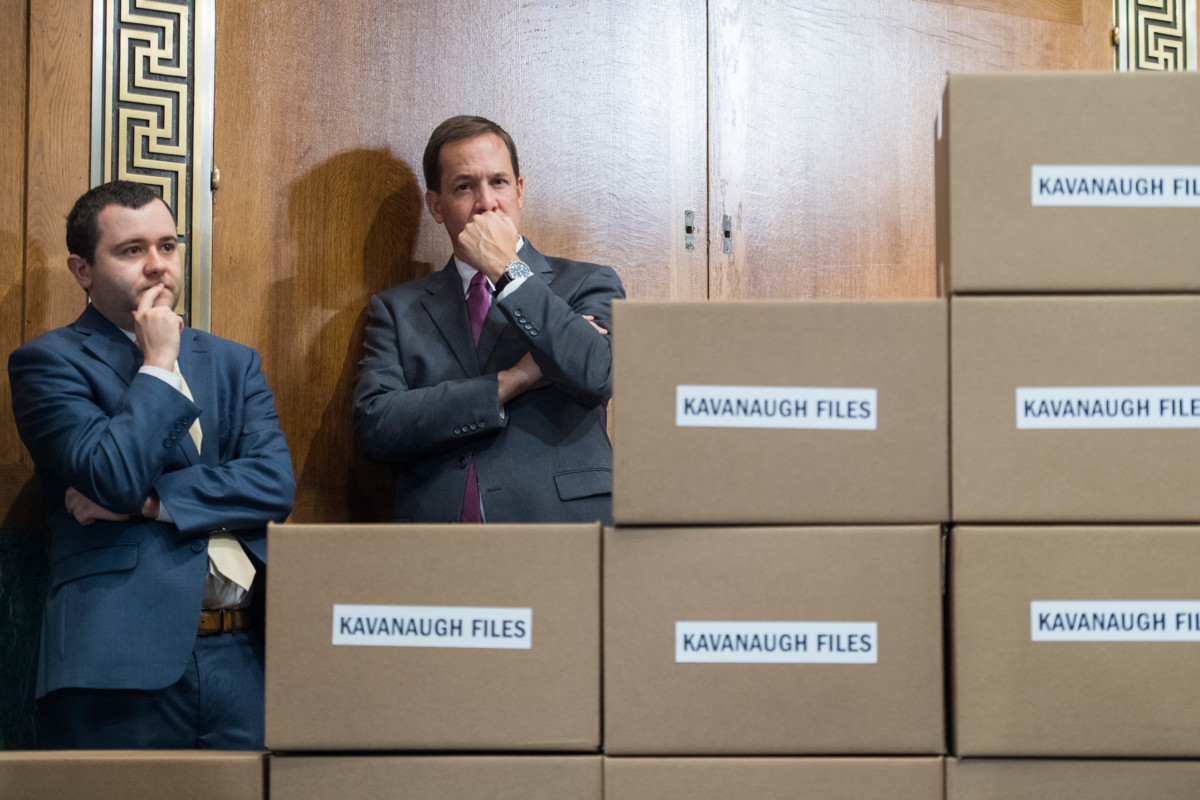President Donald Trump and the Republican-controlled Congress may hope to confirm Brett Kavanaugh to the Supreme Court before November’s midterm elections. However, the National Archives may have just thrown a wrench into their swift timeline.
On Thursday, Senate Judiciary Chairman Chuck Grassley (R-IA), received a letter from National Archives’ general counsel Gary Stern explaining that the organization would not be able to meet an Aug. 15 deadline to provide all documents pertaining to Kavanaugh’s service as a White House lawyer under former President George W. Bush. According to Stern’s letter, it simply would not be realistic for the Archives to compile and submit all of the necessary documentation in such an abbreviated period of time.
“The total volume of your request could be more than 900,000 pages,” Stern explained in his letter to Grassley after breaking down how many documents would be included in the different categories identified by the Senate Judiciary Chairman. “By way of contrast, the total volume of records that NARA reviewed for the nomination of Justice Roberts was approximately 70,000 pages, and the volume for Justice Kagan’s nomination was 170,000 pages.”
John Roberts was appointed as Chief Justice of the Supreme Court by Bush in 2005. Elena Kagan was appointed as an Associate Justice of the Supreme Court by former President Barack Obama in 2010.
As a result of this voluminous documentation, Stern concluded that “we will not be able to complete our review of all of the records that you have requested by Aug. 15.” He instead speculated that the Archives would be able to meet Grassley’s request over a prolonged stretch, writing that “we can complete our review of the textual records and the subset of White House Counsel Office emails ‘from’ Kavanaugh (approximately 49,000 emails) – totaling roughly 300,000 pages – by approximately August 20, 2018, and currently expect to be able to complete the remaining 600,000 pages by the end of October 2018, all of which would then be followed by notification to the PRA representatives.”
Kavanaugh currently serves as a circuit judge for the United States Court of Appeals for the District of Columbia. He previously served as White House staff secretary under Bush, helped his campaign during the controversial Florida recount in the 2000 presidential election and worked for independent counsel Ken Starr during the impeachment scandal that afflicted former President Bill Clinton.
Although Kavanaugh has developed a lengthy history of supporting executive power and trying to protect presidents from criminal investigations and civil lawsuits while they are in office, he argued during the Starr phase of his career that a president could be impeached for lying to his staff and misleading the public.
It is unclear what Kavanaugh would decide to do if the Trump-Russia scandal found its way to the nation’s highest bench. What is clear, however, is that if Republicans do find a pretext for ramming Kavanaugh’s confirmation through before the midterm elections, they would likely have to do so with incomplete information about his past.
Join us in defending the truth before it’s too late
The future of independent journalism is uncertain, and the consequences of losing it are too grave to ignore. To ensure Truthout remains safe, strong, and free, we need to raise $27,000 in the next 24 hours. Every dollar raised goes directly toward the costs of producing news you can trust.
Please give what you can — because by supporting us with a tax-deductible donation, you’re not just preserving a source of news, you’re helping to safeguard what’s left of our democracy.
